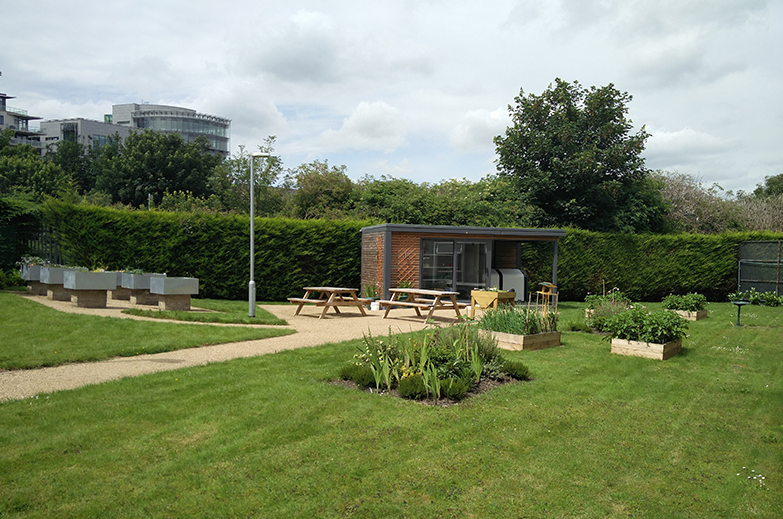
St Patrick’s Mental Health Services (SPMHS) has recently joined with many other healthcare providers in recognising participation in gardening as a valuable tool in the recovery process.
Our St Patrick's University Hospital (SPUH) opened its very own garden for use by service users in spring 2016 and has been running regular gardening groups since. The primary aim of these groups has been to promote the value of gardening as a positive lifestyle choice.
In generations gone by, people were sent to the countryside to help them recover from serious illness. However, it has taken until recent years for researchers to begin to explore what it is about gardening that impacts on our wellbeing.
In recent research, there has been a growing emphasis on the value of gardening as a cross-gender, gradable activity suitable to meet the needs of a range of individuals. One piece of research highlights some of the reasons why gardening has such a positive impact on our mental health.
Some of these reasons include that gardening:
- gives us a sense of responsibility
- provides us with an opportunity to nurture
- gives us the ability to connect with living things
- enables us to relax and let go
- increases serotonin and dopamine (happy hormones) and decreases cortisol (the stress hormone)
- offers a place to vent anger and aggression
- is a very easy task to grade, so it meets people’s individual needs in an inclusive way.
Thrive, a leading United Kingdom (UK) charity in disability and gardening, has suggested that gardening can help people connect with others and thereby reduce feelings of isolation and loneliness. This is particularly relevant in the area of mental health, as so many individuals with mental health difficulties become isolated from their communities.
Ireland has seen an increasing trend of community gardening projects and tidy towns initiatives which are an excellent way for individuals to engage with their communities. Gardening is inclusive regardless of ability or geographical location. Participation in so many activities is restricted by transport and financial restrictions; however, gardening has the ability to overcome these barriers.
The Director of the Royal Horticulture Society, Sue Biggs, summarised the far-reaching positive impact of gardening when she said "gardening and being in and around green spaces can provide a range of health benefits, from increased exercise, stress reduction and increased social cohesion that creates a sense of belonging".
Get started with gardening
- Spend time in nature, a local park or your own garden.
- Continue or take up using your existing garden space.
- Find a local allotment or community garden.
- Visit one of the many Royal Horticulture Society of Ireland gardens for simple garden appreciation.
- Join your local gardening group.
- Volunteer at your local gardening project.

